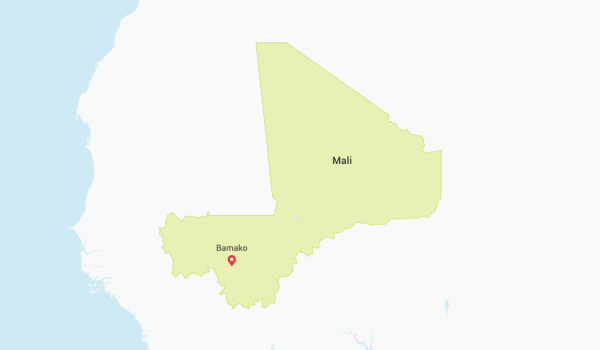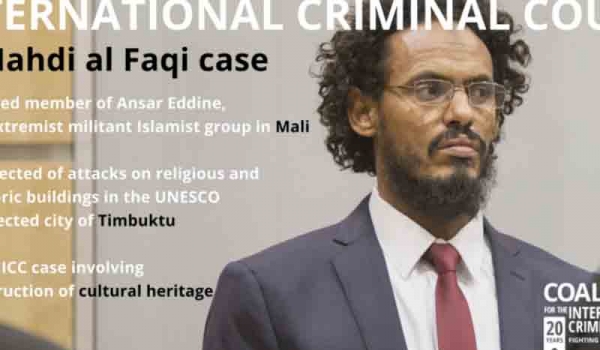Destruction of Timbuktu provokes outcry
Mali’s city of Timbuktu is listed as a World Heritage Site by UNESCO and is heralded as the centre for Islamic culture and learning between the 13th and 17th centuries. The destruction of the city’s cultural heritage following the invasion of northern Mali by Islamist rebels in 2012 provoked an international outcry. Intentionally directing attacks against historical monuments or buildings dedicated to religion are war crimes under the ICC Rome Statute.
Cultural war crimes can be traced back through the body of law governing conduct during armed conflict: the 1954 Hague Convention for the Protection of Cultural Property and its two protocols; and the 1977 protocols to the Geneva Conventions.
Islamist al-Mahdi arrested in Niger on ICC warrant
An ICC arrest warrant was issued under seal for suspected Islamist rebel Ahmad al-Faqi al-Mahdi on 18 September 2015. He was arrested and transferred to ICC custody by the government of Niger on 26 September 2015. The ICC prosecutor alleged al-Mahdi worked closely with terrorist groups Ansar Dine and al-Qaeda in the Islamic Maghreb (AQIM) after they took control of Timbuktu in 2012 and imposed strict Sharia law over the city and its population. Al-Mahdi allegedly headed the 'Manners’ Brigade' enforcing the Islamic Court in Timbuktu.
As well as being the first such case to come before the ICC, this is also the first arising from the ICC Mali investigation, and the first time a suspected Islamic extremist appeared before the ICC.




